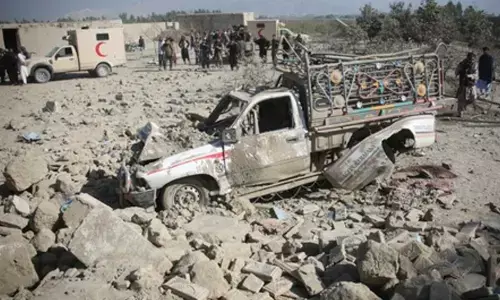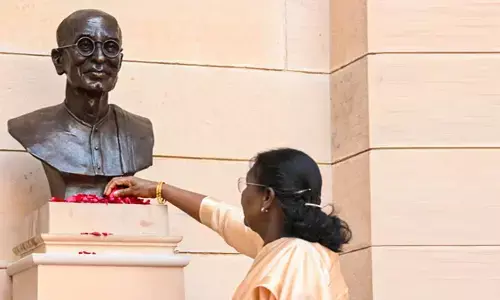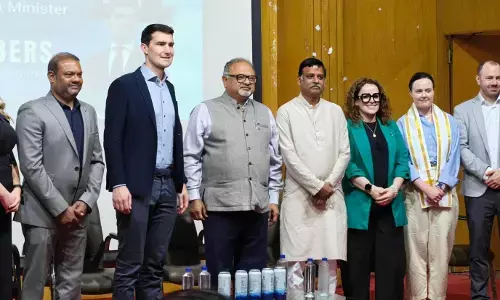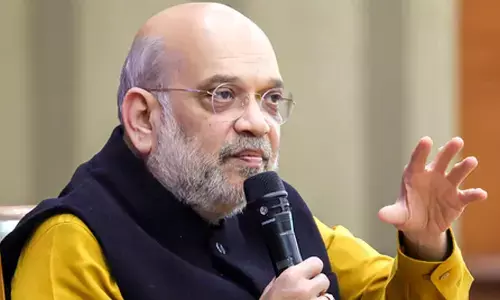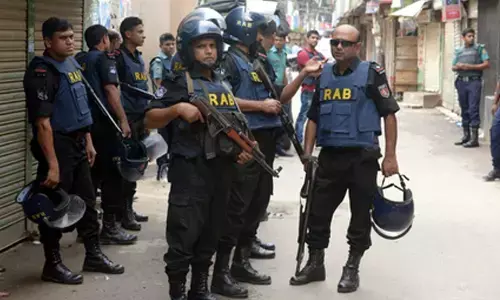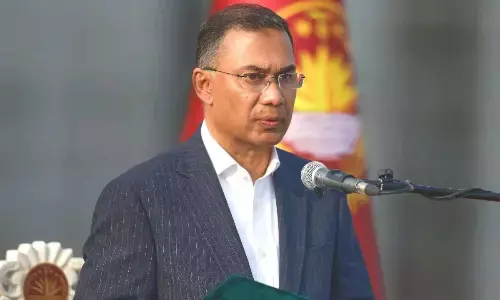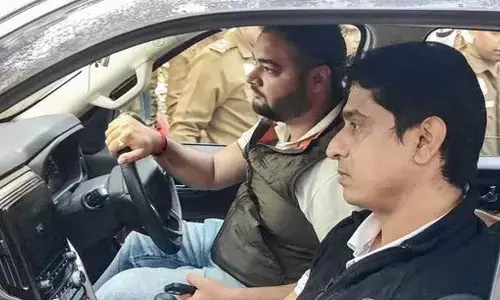 India has just concluded the biggest elections in human history, with some 815 million eligible voters electing 543 members to a new lower house of Parliament, the Lok Sabha. The country with 26% of its 1236 million population still illiterate has stood firmly and unwaveringly on the side of democracy giving an inspiring example for the international community. India's diversity is spread across 29 States, 7 Union Territories, 9 major religious faiths and 22 scheduled languages that reflected in its political landscape with 6 national parties, 47 regional parties and over 1500 unrecognized parties.
India has just concluded the biggest elections in human history, with some 815 million eligible voters electing 543 members to a new lower house of Parliament, the Lok Sabha. The country with 26% of its 1236 million population still illiterate has stood firmly and unwaveringly on the side of democracy giving an inspiring example for the international community. India's diversity is spread across 29 States, 7 Union Territories, 9 major religious faiths and 22 scheduled languages that reflected in its political landscape with 6 national parties, 47 regional parties and over 1500 unrecognized parties.
In the past, in spite of higher percentage of illiterate people, Indian democracy has seen excellent verdicts by voters electing stable governments with one party in the state and another one at the centre in the combined elections. However, for the last two decades people have judged that no single party worthy of ruling this country and have opted for coalition governments. History is not just set of dates to memorise but sequence of events one must learn from. The Janata Party nightmare and VP Singh’s tenure is a grim reminder that a fractured verdict has put India back several decades. The split verdict with UPA-I and UPA-II resulted in misrule and misery to people with several scams.The experience as shown that decision making and adopting legislation is becoming increasingly difficult with coalition governments. The functioning of India's Parliament has also been disrupted due to confrontation among political parties.
In order to excel in competitive global environment, cooperation and not confrontation is what is required in the political system of the country.
Looking at the past bitter experiences this time people may not have voted for their regional interests but casted their ballot thinking about a macro national picture. There were three potential choices to voters: the BJP led NDA Congress led UPA and possible Third Front.
People are in a mood to reject Congress because of numerous scandals of immense magnitude in the last decade. Added to this they fear that Rahul Gandhi propped up by sycophants with no practical experience in governance nor a track record of success in anything would harm the interest of the nation and not able to fulfil aspirations of youth.
People appear to be not in a mood to accept Third Front because of contrast ideological differences and selfish interest of potential constituent parties that would make the government unstable soon and bring Aayaram – Gayaram prime ministers.
People want change and first time in elections, phrases like “minimum government maximum governance” has been heard with development as the buzz word. Empowerment not doles, jobs not quota are some of the big ideas being communicated to people which are not even in the dictionary of the Congress. People appear to be leaning towards BJP lead NDA because Modi was declared as Prime Minister Candidate. Going by the mood of the nation, first time voters are tilting towards Modi because of his proven track record and tangible promises like uninterrupted electricity, better infrastructure, jobs, security and a better future.
The Congress ruled the country since independence and lost in 1978 because of its own gargantuan mistakes, particularly due to emergency. Later also Congress lost mainly due to negative voting. People voted against the Congress, not necessarily for better alternatives. This time Congress is expected to lose not only because of negative voting, but also because of an immensely positive vote for Narendra Modi.
There is no point in having a good Prime Minister like Man Mohan Singh who did more harm than good by keeping silent on various scams surrounded his government. Bertrand Russel, a Nobel-prize winning philosopher, wrote an essay “The Harm Good Men Do” to clarify confusion on this subject. A good man for prime minister is one who can deliver the goods and take the country forward. Modi with proven administrative experience is believed by many to deliver stable and good governance in the current scenario. Good governance means more jobs, more electricity, better roads, schools that teach and hospitals that heal.
Several critics of Modi point out that he has a dictatorial style of leadership that may not be acceptable to people and many other endorse that his is a decisive style of functioning which should be taken as asset rather than limitation. One must also remember that the country thrived under a little stricter functioning for example under stalwarts like Indira Gandhi at national level and Pratap Singh Kairon in Punjab and Bansilal in Haryana to name a few. Of course, undoubtedly there were aberrations in the process but one cannot deny that the positive results outweighed the inconveniences caused to people with decisive functioning. In order to excel in competitive global world, the country needs a leader who can move from rhetoric to action and dreams to reality so that the nation can move ahead towards realizing its full potential.
At a time when the country is corruption ridden with innumerable scams looting lakhs of crores of public money, Narendra Modi gives a hope with his impeccable integrity. He has focused his entire energy on building in Gujarat an able administration and good governance and achieved phenomenal development and economic growth along with social inclusiveness.
The present elections for the sixteenth time in independent India pose a challenge to voters to choose their representatives to the Lok Sabha, from which will spring forth the next government. The voters have exhibited remarkable sagacity in the past and will no doubt do so again. It is likely that this time also no single party will get a majority but BJP emerging with maximum seats under a strong person like Modi will tackle the challenge of putting together a coalition government under control and bring stability to turbulent democracy in the country. This time over 100 million young voters who are born after liberal economic policies are adopted will be casting their vote for the first time whose concerns are focused around corruption, quality of governance and unemployment. They sure know that a government under Modi can certainly deliver the goods. These are the people who shall make this happen!

 India has just concluded the biggest elections in human history, with some 815 million eligible voters electing 543 members to a new lower house of Parliament, the Lok Sabha. The country with 26% of its 1236 million population still illiterate has stood firmly and unwaveringly on the side of democracy giving an inspiring example for the international community. India's diversity is spread across 29 States, 7 Union Territories, 9 major religious faiths and 22 scheduled languages that reflected in its political landscape with 6 national parties, 47 regional parties and over 1500 unrecognized parties.
India has just concluded the biggest elections in human history, with some 815 million eligible voters electing 543 members to a new lower house of Parliament, the Lok Sabha. The country with 26% of its 1236 million population still illiterate has stood firmly and unwaveringly on the side of democracy giving an inspiring example for the international community. India's diversity is spread across 29 States, 7 Union Territories, 9 major religious faiths and 22 scheduled languages that reflected in its political landscape with 6 national parties, 47 regional parties and over 1500 unrecognized parties. 

